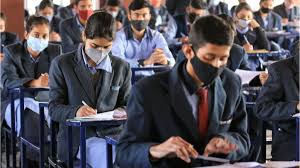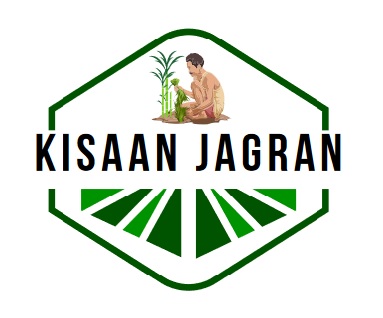
Multiple Choice Questions (MCQs) Publish Date : 15/07/2023
Multiple Choice Questions (MCQs)

Genome Sequencing Projects
1. India has sequenced a part of chromosome 11; the other country sharing this chromosome was………..
(a) China (b) France
(c) Taiwan (d) Japan
Ans. B
2. `Indian Initiative for Rice Genome Sequencing` (HRGS) as a part of international consortium for sequencing of the rice genome was launched by the Department of Biotechnology (DBT), New Delhi, in:
(a) 2001 (b) 2000
(c) 1998 (d) 1999
Ans. B
3. Which is the pathogenic strain of E.coli whose genome has been sequenced in 2001?
(a) O157:H7 (b) El T
(c) K-12 (d) MG1655
Ans. A
4. Whole genome of the first free-living organism was sequenced at:
(a) The institute for Genomic Research (TIGR)
(b) Bayer College of Medicine Human Genome Sequencing Center
(c) The Washington University Genome Sequencing Center
(d) University of Wisconsin-Madison
Ans. A
5. In rice genome sequencing project, the maximum number of chromosomes has been sequenced by:
(a) China (b) France
(c) USA (d) Japan
Ans. D
6. Whole genome of the first free-living organism was sequenced in:
(a) 1998 (b) 1995
(c) 1985 (d) 1977
Ans. B
7. Among the diploid crops, the ………. Possesses the smallest genome.
(a) Potato (b) Tomato
(c) Oat (d) Eggplant
Ans. B
8. Among prokaryotes, the smallest genome is of:
(a) Bacillus subtilis
(b) Haemopholus influenza KW20
(c) Salibacter (Acidobacteri(a)usitatus Ellin6076
(d) Carsonella ruddii PV
Ans. D
9. The International Rice Genome Sequencing Project (IRGSP) was initiated by……..:
(a) UK (b) India
(c) USA (d) Japan
Ans. D
10. The genome of Haemophilus influenza is small and consists of ……….. genes in the entire genome:
(a) 1840 genes (b) 1740 genes
(c) 1640 genes (d) 1540 genes
Ans. B
11. The genome of Neurospora crussa is organized in ………….. Chromosomes:
(a) 9 (b) 8
(c) 7 (d) 6
Ans. C
12. 12. The maximum number of genome sequencing projects has been carried out at:
(a) Germany (b) Canada
(c) UK (d) USA
Ans. D
13. Rattus norvegicus is commonly known as the:
(a) Norwegian rat (b) Common rat
(c) Brown rat (d) All of these
Ans. D
14. This international Human Genome Project started in:
(a) December, 1990 (b) October, 1990
(c) August, 1990 (d) June, 1990
Ans. B
15. Genomes of human and mice had been sequenced; both had revealed similarity in about ……….. genes.
(a) 3000 (b) 1500
(c) 300 (d) 150
Ans. C
16. The Institute for Genomic Research (TIGR) is situated at:
(a) Houston (b) Berkeley
(c) Wisconsin (d) Rockville
Ans. D
17. Human Genome Project was completed in 2003; the chromosome no. was sequenced in:
(a) 2006 (b) 2003
(c) 2000 (d) 1997
Ans. A
18. Initial sequencing of the human genome was published in 2001 in:
(a) Science (b) Nature
(c) Both (d) None
Ans. C
19. The progress of HGP was greatly increased after the involvement of a private company … by J.Craig Venter.
(a) Syngenta (b) Strand Genomics
(c) Celera Genomics
(d) The Institute for Genomic Research
Ans. C
20. Which among the following is the largest genome sequenced until now?
(a) Oryza sativa
(b) Homo sapiens
(c) Caenorhabdtitis elegans
(d) Guillardia theta
Ans. B
21. Ethernet was described in thesis of …….. submitted to Harvard University.
(a) P.H.O` Farrell (b) Ray Tomlinson
(c) Robert Metcalfe (d) Paul Berg
Ans. C
22. Transmission Control Protocol (TCP) was developed by:
(a) Tom Trustcott, Jim Ellis and Steve Bellovin
(b) Allan Maxam, Walter Gilbert and Frederick Sanger
(c) Vint Cerf and Robert Khan
(d) Bill Gates and Paul Allen
Ans. C
23. The aspects of bioinformatics that are applied to drug discovery and drug designing are known as:
(a) Medical informatics
(b) Biomedical informatics
(c) Pharmacoinfomratics
(d) All of the above
Ans. D
24. Bioinformatics is a multidisciplinary subject and requires the knowledge of many subjects. Pick the odd one out from the following:
(a) Mathematics (b) Geography
(c) Information technology (d) Biology
Ans. B
25. Bioinformatics is:
(a) Searching and retrieval of data
(b) The storage, annotation and analysis of data
(c) A newly emerged inter-disciplinary scientific discipline that interfaces the developments of computer science and information technology with biological sciences
(d) All of these
Ans. D
26. The application of genomic approaches and technologies to the identification of drug targets is known as:
(a) Pharmacology
(b) Pharmacogenetics
(c) Pharmacogenomics
(d) Pharmacoinformatics
Ans. D
27. The SWISS- PROT database was created by:
(a) European Molecular Biology Laboratory (EMBL)
(b) Department of Medical Biochemistry, University of Geneva
(c) None of the above
(d) Both of these
Ans. D
28. The Compact Disk (CD) was launched in:
(a) 1984 (b) 1983
(c) 1982 (d) 1981
Ans. B
29. Which of the following is used for structure visualization?
(a) MODELLER (b) CLUSTAL
(c) BLAST (d) Cn3D
Ans. D
30. A drug can act as a:
(a) Poison (b) Medicine
(c) Both (a) & (b) (d) None of these
Ans. C
31. A ligand is:
(a) A molecular group
(b) A molecule
(c) An ion
(d) All of these
Ans. D
32. Which serves as a drug?
(a) Inorganic substances
(b) Products from animal sources
(c) Plant extracts
(d) All of the above
Ans. D
33. Altered drug behavior is studied in:
(a) Molecular Biology (b) Genetics
(c) Pharmacogenetics (d) Biochemistry
Ans. C
34. Which act as a drug target?
(a) Nuclear Receptors (b) Enzymes
(c) Ion Channels (d) All of these
Ans. D
35. The EBCDIC contains ……. Bit in its zone.
(a) 8 (b) 6
(c) 4 (d) 2
Ans. C
36. A computer consists of:
(a) Input and Output Devices (I/O devices)
(b) Memory and Secondary Storage
(c) Central Processing Unit (CPU)
(d) All of these
Ans. D
37. The hexadecimal value 1E is equal to the octal value ………
(a) 36 (b) 34
(c) 32 (d) 30
Ans. D
38. The first microprocessor was:
(a) 8080 (b) 8008
(c) 4040 (d) 4004
Ans. D
39. 1 GB is equal to ………… bytes.
(a) 1,099,511,628,000
(b) 1,073,741,824
(c) 1,048,576
(d) 1,024
Ans. B
40. The basic functions of processor are:
(a) Executing arithmetic and logical operations
(b) Controlling each operation
(c) Interfacing with main memory
(d) All of these
Ans. D
41. The decimal value 30 will be ………… in binary number system.
(a) 10111 (b) 11011
(c) 11101 (d) 11110
Ans. D
42. The full form of CPU is:
(a) Computer`s Personal Unit
(b) Computer`s Processing Unit
(c) Central Processing Unit
(d) Central Primary Unit
Ans. C
43. Microsoft Word (MS word) made its first appearance in:
(a) 1984 (b) 1983
(c) 1982 (d) 1981
Ans. B
44. System board is also called as:
(a) Peripheral board (b) Hard board
(c) Peripheral Component Board
(d) Mother board
Ans. D
45. UNIX was developed by:
(a) Kenneth Thompson and Dennis Ritchie
(b) Tom Truscott, Jim Ellis and Steve Bellovin
(c) Vint Cerf and Robert Khan
(d) Bill Gates and Paul Allen
Ans. A
46. Which among these is not a kind of memory?
(a) Peripheral (b) Cache
(c) Virtual (d) RAM
Ans. A
47. Vacuum tubes were used in:
(a) Fourth generation computer
(b) Third generation computer
(c) Second generation computer
(d) First generation computer
Ans. D
48. Which among the following is an input device?
(a) Speaker (b) Printer
(c) Touch pad (d) Monitor
Ans. B
49. John Von Neumann invented:
(a) UNIVAC (b) EDVAC
(c) ENIAC (d) ABC
Ans. B
50. Which among the following is an output device?
(a) Scanner (b) Monitor
(c) Mouse (d) Keyboard
Ans. B


